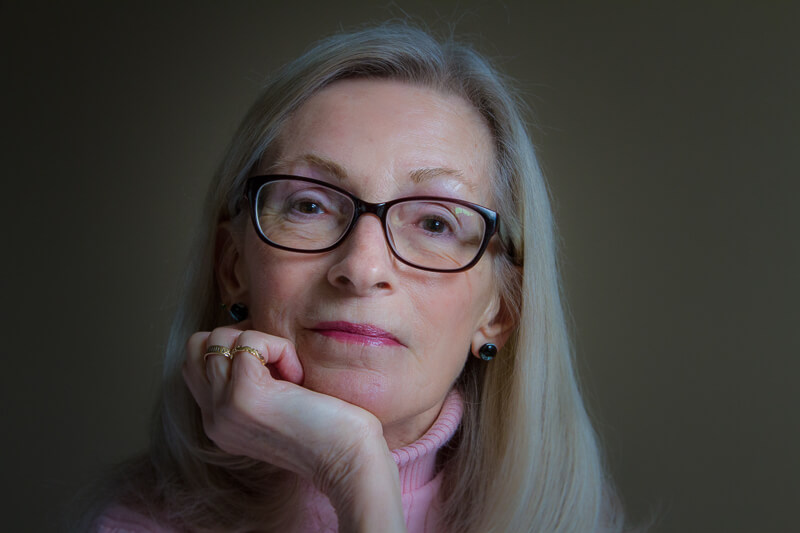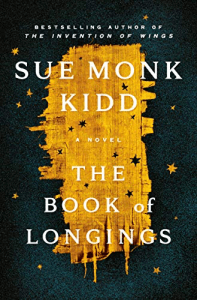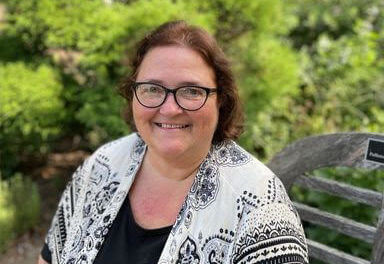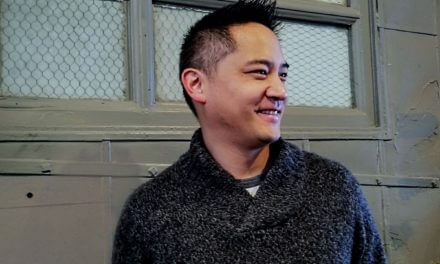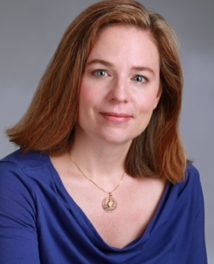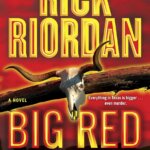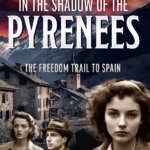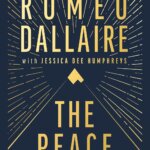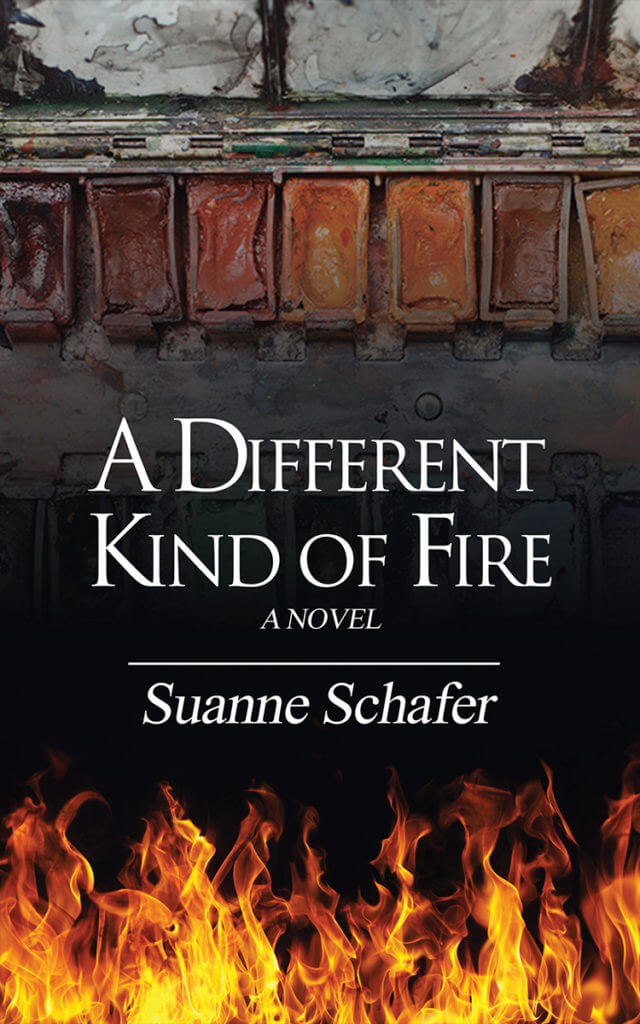Joining me today is Barbara Conrey, author of Nowhere Near Goodbye, released August 4, 2020 by Red Adept Publishing. She worked in the health care industry for many years before opting for an early retirement, which lasted all of three months. She then accepted a position in finance, for which she had absolutely no background, and four years later, she decided to write a book. But not about finance.
Travel is her passion, along with reading, writing, hiking, and exploring antique shops. Her greatest love is Miss Molly, her rescue beagle. There are stories to be told about beagles, and Barbara hopes to incorporate some of them into her books.
Barbara lives in Pennsylvania, close to family and friends.
SS: What did you want to grow up to be as a child? Has that child’s desire appeared in your work?
BC: I’ve always wanted to be a writer, but life kept getting in my way. In Nowhere Near Goodbye, I made Emma’s husband (Emma is the protagonist) a well-respected, NY Times Bestselling author. That was fun.
SS: What in your childhood contributed to you becoming a writer?
BC: Reading. I was timid as a child and read constantly. Reading took away my loneliness. Even as a child, I knew I wanted to create worlds where others could find solace or friendship or love or laughter.
SS: Did anything in your past push you to write about your book and the conflict(s) in it?
BC: A friend lost a family member to glioblastoma about fifteen years ago. I watched my friend turn old and sad and gray in a matter of weeks. It made me so angry. Even now, it makes me angry because this supposedly rare brain tumor doesn’t seem quite so rare—I know three other people who’ve died from this tumor that favors middle-aged men, yet two were children and the other two were women.
SS: Writing is undoubtedly a lonely occupation. John Green (The Fault in Our Stars) says writing is a profession for introverts who want to tell you a story but don’t want to make eye contact while doing it. P. D. James (Cover Her Face) says it’s essential for writers to enjoy their own company. Do you see yourself along those lines? Are you a natural loner?
BC: I’m more of an extroverted introvert—if there is such a thing. I am perfectly happy spending days, weeks, alone, yet put me in a people situation, and I mostly bloom.
SS: If you have children, does being a parent influence your writing? To what extent?
BC: I am a parent. And a grandparent. And although my writing is fiction, there are quirky memories that easily surface in my stories.
SS: Hilary Mantel (Wolf Hall) says that a Catholic upbringing is the only qualification a writer requires. Can you relate to this idea? Do you have any similar writing qualifications?
BC: I completely relate to this idea! Guilt is breastfed into all good Catholic children. And maybe we try to hide that guilt or ignore it, but just like happy memories, it easily slides into our writing.
SS: How long have you considered yourself a writer? Did you have any formal training, or is it something you learned as you went?
BC: I think I’ve fallen into the same trap as many writers, or maybe just female writers? I’ve considered myself a writer for the last six years; these are the years I’ve actively spent writing. I only considered myself an author when I held my book in my hand—or maybe the first time I saw it in the wild.
Oh, I learned as I went. My lack of formal training reared its ugly head in the first two years I spent writing Nowhere Near Goodbye. I thought I knew what I was doing when I handed two critique partners what I felt was a reasonably good manuscript, and I think it was an effort on their part for them not to laugh. It was at that point that I seriously devoured craft books and took every available craft class I could find. And rewrote. And rewrote. And rewrote.
SS: Do you generally write in one genre? If so, what is it? And what can readers expect from one of your books?
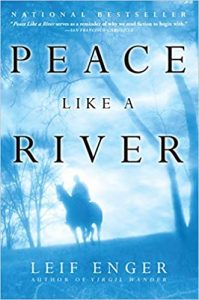
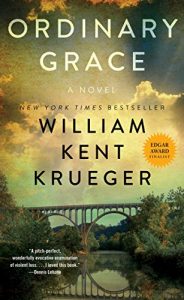
Readers can expect both humor and darkness from my writing. I go for the joke. But when I don’t, I go for the heart.
SS: What are you working on at the moment?
BC: I just started working on revisions for my second novel, as yet untitled. The story is located in Intercourse. PA. (the same location as Nowhere Near Goodbye) and the time frame starts about thirty years earlier.
It’s the story of Miss Maggie, who has a small yet wonderful role in Nowhere Near Goodbye. In my new book, I delve into Miss Maggie’s past and then connect the dots between her and Anne, another character who played a small role in Nowhere Near Goodbye. It’s a story about a love affair between two women and what that was like in such a conservative part of the country in the 1950s and 60s.
I loved Miss Maggie so much when I wrote Nowhere Near Goodbye I knew I wanted to dig deeper into her past and what led her to Intercourse from Oma, Wisconsin. Book Two follows Miss Maggie through her entire adult life and reveals its fair share of secrets.
SS: When you are creating a story, do you avoid reading books in the same vein so as not to be influenced by others, or do you seek out all possible variations for maximum inspiration?
BC: I tend to seek out same-genre books because sometimes that leads to a spark of an idea to what I am writing yet has absolutely nothing to do with what’s in the book I’m reading. I look for inspiration everywhere!
SS: It is often believed that almost all writers have had their hearts broken at some point in time, does that hold true for you?
BC: I don’t know that my heart has truly been broken, but it surely has been tested. I do think, however, that we write from pain.
SS: What other authors are you friends with, and how do they help you become a better writer?
BC: Being involved in many writing communities, I have many writing acquaintances. Writers I would call friends, people I could contact and ask for help, advice, people I enjoy getting together with in real life, those writers I can probably count on one hand: Christine Adler, Jen Klepper, Sherri Leimkuehler, Kathryn Barrett.
SS: How do you give back to the writing community?
BC: This is a good question! I don’t feel I do enough, but for the past two years I’ve been a first-round judge for both the WFWA Star Contest and the Rising Star Contest. I also believe firmly in promoting other authors.
SS: What would a fly on the wall see if he watched you while you are writing?
BC: Oh, that fly would be bored to death. I show up at my desk at seven in the morning with a cup of hot tea. I write until ten, then take a break and do fifteen minutes of walking. Then I’m back at my desk until noon. I need silence. Please do not talk to me, little fly, or I will look for the fly swatter. I need silence when I write. No music. No news. Especially no news.
SS: I’m the same way. Total silence and coffee, rather than tea. What works best for you: typewriters, computer, dictation, fountain pen, or longhand?
BC: Computer. I’ve tried writing by hand, but I can’t read my own writing.
SS: Do you setting daily writing goals? If so, what are they? How do you deal with failure to meet these goals?
BC: I never set word count goals. Sometimes I set chapter goals, but that’s more in the revision phase.
SS: Do you write with an imaginary reader in mind? If so, tell us a little about that person.
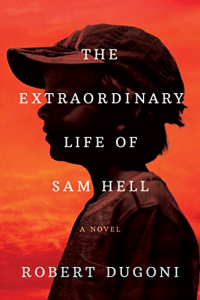
SS: I love doing these interviews and finding out what people are reading. I invariably add a few books to my To Be Read pile. So, what are you currently reading?
BC: The Extraordinary Life of Sam Hell by Robert Dugoni
SS: At what point did you come up with the title? Did your publisher change it?
BC: I came up with the title while writing the rough draft. I loved the title, and when it was picked up by the publisher, I was advised it might change, but they kept it. It’s almost the last line in the book
SS: Could you say something about your relationship to your fictional characters? How autobiographical do you think your current work is?
BC: My characters are always in my head, but the closest to autobiographical is a secondary character, Miss Maggie. And that’s just because I gave her a few of my physical characteristics and my (occasionally) outspoken demeanor.
SS: What advice would you give aspiring writers?
BC: Do not give up. Join a writing organization. Take every craft class that you can. Read!
SS: What’s the first book you read that made you think, “I’ve got to write something like this someday!”
BC: Probably anything written by Jodi Picoult.
SS: Can men write women’s fiction?
BC: Absolutely. Chris Bohjalian writes wonderful women’s fiction. I’ve never read a book written by a man where the author can so completely mimic the reactions, feelings, and sensitivities of a woman.
SS: What role do consent and the #MeToo movement play in your writing?
BC: A more significant role than I thought. Two of my critique partners brought to my attention scenes that might be looked at in a poor light in today’s environment but were the norm for the time frame of the story. And even though the scenes fit the moment, they did not fit this moment, the moment of #MeToo, so I removed them rather than offend anyone
SS: Do you believe in real-life happily-ever-afters? Does women’s fiction have to have a HEA?
BC: No, I don’t necessarily believe in happily-ever-after, and I am annoyed by authors who tie up the endings to their stories in pretty little bows. I want a realistic end. I want it to make sense. However, I might be in the minority there with women fiction fans.
SS: Do you think political statements belong in women’s fiction? Would you write a novel that was a political tract?
BC: Yes. I do think political statements belong in women’s fiction. Just because a book is classified as women’s fiction doesn’t mean the reader isn’t equipped to consider both sides of an issue and form their own educated opinion. I would LOVE to write a political statement in my books. However, I want my readers to get to know me a little better first.
SS: What more do you think can be done to encourage diversity in women’s fiction?
BC: I think I’m probably not qualified to answer this question, but what I see in organizations such as Women’s Fiction Writers Association (WFWA), where the leadership is genuinely trying to expand our horizons as both readers and writers, is that this will take time. And, you know, there is no time. People want changes now, and I can hardly blame them. I don’t blame them. I think we need to keep trying. That we never stop trying. We need to read their books, buy their books. Speak out. Speak up.
LIGHTNING ROUND:
Describe your books in 3 words: Promises Family Forgiveness
Favorite thing about your genre? There’s almost a structure to it.
Another genre that you would love to write: Literary fiction
When writing, are you a night owl or morning person? Definitely a morning person
Pantser or Plotter? Mostly panster, but I do start with a rough outline. Call me a plotster.
Your favorite guilty pleasure: Wine
Who’s your favorite women’s fiction author? Only one? Jodi Picoult. But if I could choose more than one? Chris Bohjalian, Kristan Higgins – I could go on.
********************
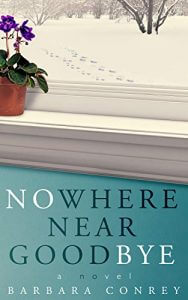
********************
An excerpt from Nowhere Near Goodbye:
Emma/Present Day
Peeing on a white plastic stick was not something I did every day.
Even though Tim knew as well as I did that the only babies in our future were the ones we might adopt someday, he convinced me it couldn’t hurt to at least rule out pregnancy as the cause of my crappy lethargy of the last couple of weeks that had me heading to the couch the moment I dragged myself home from the hospital each night.
I agreed to take the pregnancy test, but I wasn’t sure why. I hadn’t thought about what hope would be raised by taking the test. I hadn’t thought about the smile that had started in Tim’s eyes and moved down to his mouth as each day passed with no sign of my monthly cycle.
“What does it say?” I sucked in my breath and waited for my husband to give me the results of a test I never expected to take much less pass. Breathe in. I looked around the bathroom for something to focus on. Slow, slow. Okay. Now, breathe out. Nice and slow. If I didn’t concentrate, I would end up breathing into a paper bag.
While I waited for Tim to tell me the test results, my eyes darted from my wedding ring—still in the porcelain dish where it waited for me to slip it back on my finger—to the pewter bowl filled with sea glass, a gentle reminder of the first time that Tim and I had walked together on the beach in Saint Thomas.
Finally, I settled on staring at my reflection in the full-length mirror directly across from where I perched on the lip of our old claw-foot tub. I never could decide if I liked the placement of that mirror. No, that wasn’t true. I liked it just fine until I stepped out of the tub and the first thing I saw was me.
I barely hit five feet and weighed ninety pounds only when I was dripping wet. My straight brown shoulder-length hair hadn’t changed since I was a kid except for the blond highlights I’d finally worked up the courage to try. Tim described my eyes as the color of chocolate and expressive as hell. But he was a writer, so it wasn’t surprising he would come up with a better description than the reality: just plain brown.
“Hey, how are you doing?” Tim grabbed my hand and squeezed gently, interrupting my thoughts and encouraging me to hold on.
“If I’m pregnant, I hope the baby looks like you,” I told him, catching sight of his raven-black hair and eyes the exact color of the emerald on my finger. Hopeful words, but what I thought was: If I’m pregnant, I don’t know how I’ll ever finish my research.
How could I be pregnant? I was infertile, empty. That was what I’d been told. And yet… And yet I couldn’t look at Tim or the applicator and not picture a houseful of kids and a dinner table laden with big bowls of food. And little children clamoring for attention. I imagined noise and laughter and silliness in my grown-up world and all the fun that came with a big family.
It could happen. If I were pregnant, I could be pregnant again. And again.
I suddenly wanted to spread the wealth so one child didn’t need to carry the burden of perfection alone. Perfection was a burden, and that was what only children did: aim for perfection.
